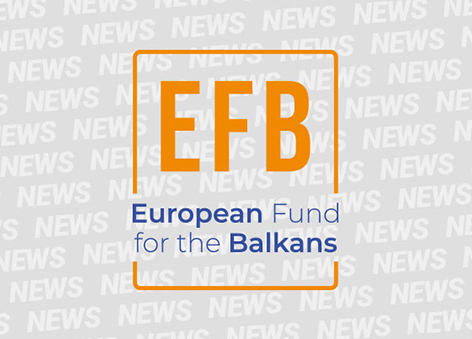
 LDP V Fellows from Bosnia and Herzegovina, Albania, Germany, Montenegro, Greece and Serbia in cooperation with the Center for Justice and Reconsiliation organized an exhibition ”CiTIzens” -National Minorities in Southeast Europe”.
LDP V Fellows from Bosnia and Herzegovina, Albania, Germany, Montenegro, Greece and Serbia in cooperation with the Center for Justice and Reconsiliation organized an exhibition ”CiTIzens” -National Minorities in Southeast Europe”.
The exhibition was organized in the framework of the 5th edition of the SEE and the EU – Leadership Development Programme.
Guests were welcomed by:
Dervo Sejdic, Vice-President of the Roma Community in Bosnia and Herzegovina
Eli Tauber, Publicist and Researcher; Member of the Jewish Community in Bosnia and Herzegovina
Rina Starova, Fellow of the Southeast Europe and the EU Leadership Development Programme
The LDP Fellows presented their 6 months work of interviewing the national maniroty members in their home countries. Group members decided to focus on minority rights since this topic has gained more and more importance in the course of the European integration, be it for older Member States or future potential candidate countries.
The Group decided to conduct interviews in the respective countries of the Group Fellows: Albania, Bosnia and Herzegovina, Montenegro, Greece, Serbia and Turkey in order to show representatives of the different minorities. The need for a critical examination of the situation of national minorities throughout Southeast Europe has become particularly apparent in recent years. The exhibition provides a regional approach displaying successful representations of members of national minorities.
„It is our hope that this project will help diminish stereotypes held by majority populations throughout the region. International actors such as the European Union must exert greater pressure on current and future member states to promote sustainable and relevant social inclusion.“ – LDP Fellows, Bosnia and Herzegovina
The group activity is the sole responsibility of the members who organized it.
“Multiculturalism is certainly the most commonly used term to define modern societies in the 21st century. This descriptive term is used for those societies that appreciate and promote a variety of cultures regardless of the particular state's leading culture. The western media tends to give preference to “mythical” multicultural societies where supposedly various cultural, linguistic and religions groups live peacefully and interact with one another. However, today we must examine whether multiculturalism is a real social phenomenon or a fantasized one.
It is not surprising that E. Renan argues that “once a nation is established, it depends for its continued existence upon a collective amnesia.” It can even be claimed that not only is the past meticulously forgotten, but the present is also deliberately neglected by nation states. Politicians, historians, academics and ultimately entire populations tend to view the past through a lens of selective memory.
The same can be said of popular views vis-a-vis a state's present. In this sense, nationhood is nurtured by both collective amnesia and collective negligence of today realities. Mass media and popular culture serve as ideal transmitters and reproducers of collective mindsets from which very few in the population can escape. Reproductions of distorted history, exaggerated myths and a general ignorance concerning today's realities shape excellent schemas according to which people like to interpret the contemporary world in self-affirmative ways that ensure their own cultural survival. Such interpretations, inevitably, are loaded with stereotypical generalizations and prejudices about the “other.” Regardless of whether the “other” is a social subgroup or a national minority, these types of configurations are generally perceived as antagonistic to the majority...
(Extract from the booklet „Citizens – National minitorities in the Southeast Europe“).






